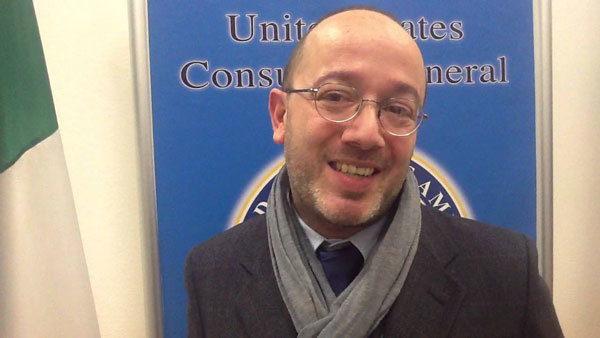Trump’s threat to break JCPOA is not serious

TEHRAN - Dr. Pastori Gianluca believes that U.S. Presidents threats to withdraw from the JCPOA should not be taken serious because he knows breaking the agreement will put the U.S. in a difficult position.
U.S. president Trump on Friday renewed Iran sanctions relief once again and at the same time warned that it was the last time that he renewed the Iran sanctions relief and asked the Europeans to work on changes to the JCPOA.
The issue was discussed with political science associated professor of Milan Catholic University of the Sacred Heart, Dr. Pastori Gianluca.
Following is the full text of the interview:
Q: U.S. president Trump on Friday renewed Iran sanctions relief once again and at the same time warned that was the last time he renewed the relieves and the Europeans should work on changes to the JCPOA. What is your general assessment of Trump’s latest approach toward the JCPOA?
A: Trump’s vagaries on the JCPOA are a product of his contrasting priorities. On the one hand, he needs to remark his difference from Barack Obama and his policies assuming a non-conciliatory position the issue; on the other, he needs to take into accounts the opinions of his entourage, who largely sees the agreement as the less bad possible option. In this perspective, playing the good cop/bad cop is a way to appease anti-Iranian sentiments without really jeopardizing the agreement.
Q: What changes is Trump after?
A: In my opinion, President Trump is not really interested in breaking the deal. Breaking the deal will put him in a very difficult position both at home and abroad. I think his aim is having some amendments approved (maybe more formal than substantial), to boost them as a major political success. His main focus is domestic politics, where he needs to strengthen its position; and relations with Iran are, traditionally, in important and highly emotional issue in the US political agenda.
Q: Considering the EU, Russia and China supports to the IAEA and Iran’s opposition to any changes to it, how realistic are Trump’s requests? Will the EU and other signatories to the deal give up to his requests?
A: I don’t think the EU, Russia or China will ever follow Trump’s path; it strongly contrasts with both their interests and their policies. On this assumption, it seems difficult to envisage any Iranian concession. On the domestic side too, President Rouhani cannot afford appearing too ‘soft’ on the nuclear issue, not to strengthen his domestic opposition. However, as long as Iran keeps on ‘playing by the rules’ (and IAEA certifies it), US room for manoeuvres is quite limited.
Q: Are European countries able to resist Trump’s requests?
A: Broadly speaking, European countries don’t like Trump, his attitude, and his choices; for these reason – as stated above – I don’t think they will ever follow him on the de-certification path. At the same time, I don’t think Trump will ever put a real pressure on European partners to pursue his Iranian agenda. Currently, U.S.-Europe relations are at a low ebb, and, if Trump is not really interested in breaking the deal (as I assume), I see no reason to put under stress an already troublesome relation.
Q: How serious should his threat be taken?
A: Trump’s attitude is quite unpredictable, on Iran as well as on other international issues. However, I don’t think his threat to break the deal or to decertify Iran again should be taken too seriously. Breaking the deal may appease some parts of the U.S. public opinion but is quite a dangerous political option, and both the Congress and the administration are well aware of this fact. Worth noting, when the President decertified Iran for the first time, the Congress chose to take no action against Teheran.
Q: What will be the consequences of possible withdrawal of Trump from JCPOA for U.S.? What will be Iran’s possible reaction?
A: Breaking the agreement will put the U.S. in a difficult position, increasing its isolation, especially if EU, Russia and China continue to support the deal. If these countries stick to their commitment, Teheran’s best option is sticking to its current ‘conciliatory’ position. Rouhani and its supporters have the utmost interest in promoting loyal adherence to the JCPOA, but they can do so only by proving to the Iranian public opinion that the ‘nuclear deal’ makes their country better off.
Q: What can Iran do to reduce the U.S. pressures?
A: On the nuclear issue, Iran currently enjoys large international support. On this assumption, from my point of view, Iran’s best strategy is loyally fulfilling the duties the agreement entails, leaving the U.S. with the burden to prove its non-compliancy, possibly against IAEA’s opinion. Anyway, as far as the EU and the other supporting countries remains committed to the JCPOA, the political and economic impact of a U.S. unilateral rejection will be probably limited.
Leave a Comment